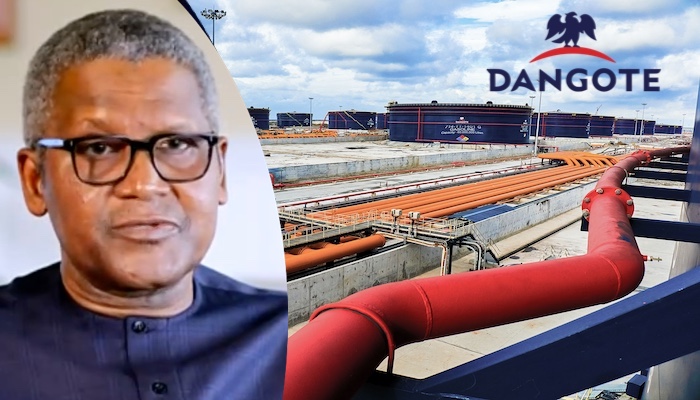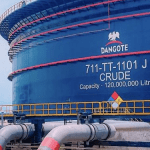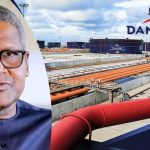FG Permits Petrol Marketers To Lift Fuel Directly From Dangote Refinery

Petroleum marketers have been granted permission by the Federal Government to lift petrol directly from the Dangote refinery, bypassing the Nigerian National Petroleum Company Limited (NNPC).
This move marks a significant shift in Nigeria’s fuel distribution system, confirming earlier speculations that the NNPC will no longer serve as the sole off-taker of fuel from the Dangote refinery.
The Federal government confirmed this in a statement released on Friday by the Minister of Finance and Chairman of the Naira-crude sale implementation committee, Wale Edun.
Edun in the statement also provided an update on the progress of the crude purchase and naira-based product sales initiative.
READ ALSO
•PDP Faction Appoints New Acting National Chairman
•Fuel Price Hike: IPMAN Threatens To Stop Operations
Edun highlighted that the government has successfully transitioned to a framework allowing local production and distribution of crude oil and refined products for domestic consumption in naira.
This followed the second review meeting of the implementation committee, which took place on October 10. During the meeting, officials assessed the progress of the initiative aimed at boosting local production and deregulating the market for petroleum products.
“With this mechanism now in full operation, along with the commencement of local production, we are well-positioned to transition to a fully deregulated market for all petroleum products,” the statement read.
It also emphasized that petroleum product marketers can now purchase Premium Motor Spirit (PMS) directly from local refineries, such as Dangote’s, without needing NNPC’s involvement.
This change allows marketers to negotiate commercial terms directly with the refineries, a step that is expected to encourage competition and improve market efficiency.
The Finance Minister expressed confidence that this new approach would ultimately benefit the entire nation by fostering a more competitive fuel market and improving supply conditions for consumers.

Sodiq Lawal is a passionate and dedicated journalist with a knack for uncovering captivating stories in the bustling metropolis of Osun State and Nigeria at large. He has a versatile reporting style, covering a wide range of topics, from politics , campus, and social issues to arts and culture, seeking impact in all facets of the society.









